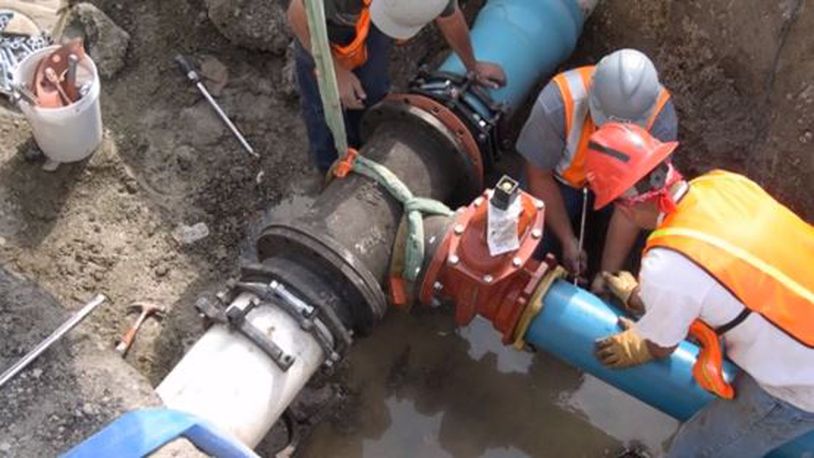
DeKalb County completes Glendale Water Main, $7.5 million infrastructure project.
By Tyler Estep
DeKalb officials are proposing a 6% hike in water and sewer rates for customers across the county.
The possibility of such a proposal — which would mark the first rate increase in several years — had been looming for months, with the county deeming its longtime water billing issues to be resolved and an updated plan for addressing the spill-plagued sewer system now in place.
DeKalb CEO Michael Thurmond said he has previously declined to raise rates until services provided to local residents and businesses were improved. But additional revenue is needed to help pay for the more than $1 billion in repairs and upgrades already underway on some of the county’s most vital infrastructure, he said.
“Rate increases are really the last option we have after we address some of these other long-standing issues,” Thurmond said.
The county administration made its formal pitch during a special-called Thursday morning meeting with a committee of the Board of Commissioners. More discussions are planned, but the full commission could vote on an increase by the end of the month.
As currently proposed, new rates would start Aug. 1.
DeKalb has a lengthy history of water and sewer issues, and some advocates would argue there’s still a whole lot of work to be done.
“I think the county owes us an explanation of why we are going to pay more for water when little has improved,” said Star McKenzie, a longtime advocate.
But since Thurmond took office in 2017, DeKalb has dedicated more than a quarter-billion dollars toward the water system, replacing nearly 50 miles of water mains and more than 100,000 water meters. Many of those meters were faulty, helping fuel a years-long saga of erroneous, extraordinarily high water bills for customers.
The county ended a five-year ban on water disconnections for unpaid bills last fall, saying the majority of issues had been addressed and disputes had dropped dramatically.
At the same time, DeKalb has had to address a sewer system that was neglected for decades. More than $600 million has been dedicated to improvements and the county renegotiated a consent decree with state and federal environmental regulators, giving it about seven more years to address areas with repeat sewer spills.
Hundreds of millions more must be spent. And the county has, among other methods, secured big-dollar, low-interest loans from the Environmental Protection Agency to help cover the cost.
Thurmond said the county has done everything it can to reduce expenses and increase revenue. A rate increase this year — and likely others in 2023, 2024, and 2025 — is the next step to make sure it can complete legally mandated repairs, he said.
Commissioner Lorraine Cochran-Johnson, who chairs the public works and infrastructure committee that heard Thursday’s presentation, said she was “comfortable” with the proposal. But she urged department leaders to continue focusing on improving service for ratepayers.
“I just implore you all to continue to solve all problems,” Cochran-Johnson said. “Because you can’t give a rate increase and have issues.”
Ted Terry, another commissioner on the same committee, said he’d prefer a tiered rate increase to ensure equity and avoid overburdening “economically vulnerable populations.”
Asked about that concept, Thurmond said the administration was “always open as to how we can make the system fairer going forward.”
“But we need to move forward right now with what we have,” he said.
Read the original story on AJC.com.











